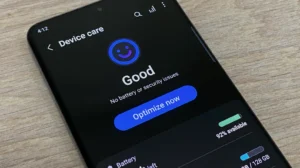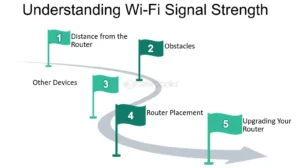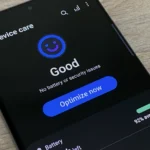How long will I live? This question stirs deep emotions within us. Today, with just a few clicks, online tools promise to answer it. These life expectancy calculators are more than just internet fun-they speak to our curiosity, our fears, and our need for control.
People turn to them not only for answers but also for comfort, hope, or even a bit of thrill. What draws us in is more than the numbers. It’s the human need to understand life’s big picture-and our place in it.
There’s a surprising psychology behind it all, and it’s more relatable than you might think. Keep reading to discover why these predictions grab our attention-and why we keep coming back.
Understanding the Compulsion to Know
The predictor of life expectancy reflects a basic human desire to control the unknown in a world full of surprises. It serves to reduce uncertainty and provide a greater sense of security about the future.
Knowing when our life might end gives us a sense of power over something that usually feels uncontrollable. Even if this security is brief, it helps ease the anxiety that comes with uncertainty. This knowledge can provide clarity in making important life decisions.
In many ways, mortality prediction is a tool to manage fear and find peace. It allows us to prepare emotionally and mentally for what lies ahead. By facing this reality, we regain a measure of control over our lives.
The Psychological Impact of Mortality Prediction Tools
Mortality prediction tools do more than provide numbers-they influence how we think and feel about life. Becoming aware of our mortality can stir a mix of emotions, from anxiety and fear to curiosity and hope. Such an emotional response often opens doors to significant self-reflection.
For many, using these tools sparks a deeper understanding of their own lives and priorities. It may motivate us to adopt healthier habits and strengthen our relationships. Facing mortality head-on encourages people to live with greater purpose and clarity.
These tools, therefore, act as a catalyst for growth and well-being. They help us confront fears and embrace hope in equal measure. Thus, mortality predictions can lead us toward a more meaningful and fulfilling journey through life.
Curiosity and Engagement through Interactive Tools
In today’s digital world, mortality prediction tools make serious topics easier to explore. Tools like the Death Clock mix humor with facts, helping people think about life in a new way. This fun and curious approach keeps users interested.
These tools are popular because they let people talk about death without fear. They turn a private thought into something that feels normal to share. This helps users face tough questions in a simple and less stressful way.
By using humor and interaction, these tools open the door to honest conversations. They help people connect over a topic that is usually hard to talk about. In the end, they make thinking about life and death feel more human.
Facing the Reality of Our Mortality
Mortality is a fact no one can escape, yet most avoid facing it. Mortality prediction tools bring this reality into focus, helping people talk about death without fear. These tools make it easier to discuss goals, values, and what really matters in life.
By using these tools, people can evaluate how daily habits influence long-term health. Simple choices-like what we eat or how often we move-can shape how long and how well we live. With this insight, it becomes easier to make changes that support a longer, more active life.
Engaging with these tools also shifts the conversation from fear to action. Instead of dreading the unknown, users gain clarity and control over their health journey. This awareness can inspire a stronger commitment to living with purpose, not just longer.
Exploring the Moral Dimensions of Mortality Prediction
Mortality prediction tools offer valuable insights, but they also bring serious ethical concerns. Knowing the exact time of death can cause stress and worry, sometimes leading to harmful choices. This knowledge may shift focus from living well to fearing what lies ahead.
Wisely using these tools requires balancing curiosity with restraint. They provide data-driven estimates, not absolute truths about our future. It’s important to treat these predictions as guides, not certainties.
Ultimately, life’s value comes from enjoying the present, not fixating on how much time remains. Embracing uncertainty allows us to focus on meaningful experiences and relationships. This mindset encourages a fuller, richer way of living, beyond numbers and predictions.
Accepting Our Mortality and Encouraging Positive Change
Mortality prediction tools captivate us because they push us to rethink how we live and the legacy we hope to leave behind. They challenge us to reflect on our daily choices and focus on what truly matters in life. By accepting mortality, we can shift our priorities toward nurturing relationships, seeking meaningful experiences, and fostering personal growth.
These tools are not just about predicting an end-they can serve as powerful prompts for self-awareness and change. They encourage us to pause and evaluate whether our actions align with our true values. This reflection can lead to intentional living, where every moment is valued and purposeful.
When used thoughtfully, mortality prediction tools become more than morbid curiosities-they become catalysts for transformation. They inspire a renewed energy to live fully and authentically. Embracing this mindset helps us create lives rich in meaning, guided by what matters most.
Embracing the Truth Behind the Numbers
Mortality prediction tools do more than feed curiosity-they push us to think about how we spend our time. They remind us that life isn’t endless and that every moment matters. Facing the idea of an endpoint can feel strange, but it also helps us make better choices and focus on what really counts.
These tools open the door to honest thoughts about health, goals, and how we want to live. It’s not about fear-it’s about clarity. If you’ve ever felt drawn to click on one of these tools, you’re not alone. There’s more to uncover about why they matter, and our blog breaks it all down.











